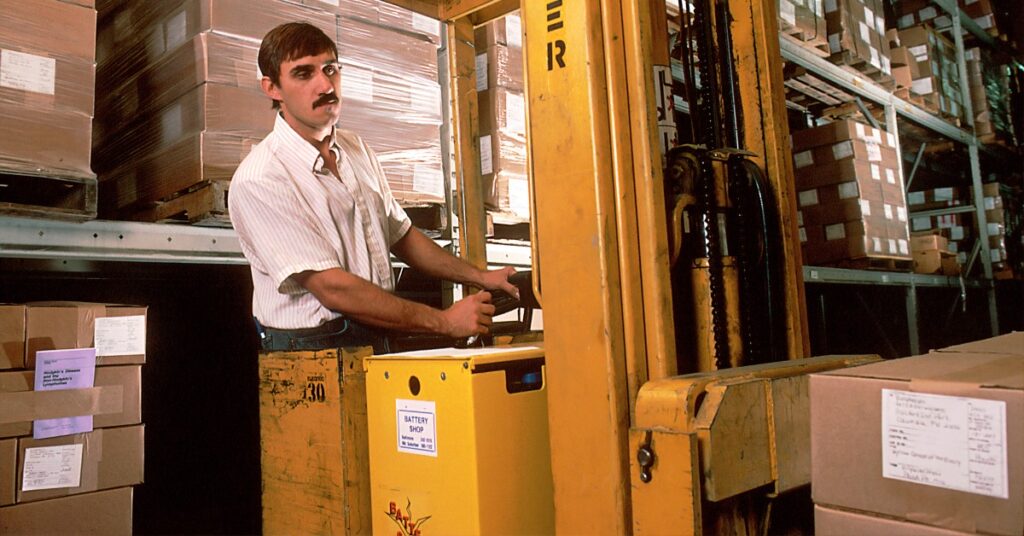
How Much Will You Make With a Master's in Business Analytics?
A master's in business analytics can help you land a [...]

Supply chain management (SCM) involves getting products from one end of the supply chain to the other. It’s a process that can span the entire product journey from raw material to customer service.
According to the US Department of Labor’s Career OneStop website, supply chain managers “direct or coordinate production, purchasing, warehousing, distribution, or financial forecasting services or activities to limit costs and improve accuracy, customer service, or safety.”
To accomplish these many tasks, SCM professionals need a balance of soft and hard skills. Data and metrics may help identify the most cost-effective supply chain strategy, but it takes excellent communication and teamwork to implement it properly. In addition to identifying potential growth areas—such as the need for better shipping practices—SCM professionals must manage employees and maintain positive relationships with third-party partners.
You may think this is too big of a job for one person to manage, and it’s true: there are many SCM specialties. For example, though both fall under the SCM header, procurement managers and transportation managers have different day-to-day responsibilities that require different skillsets.
So, what skills does a supply chain manager need? This guide covers topics like:
Successful supply chain professionals improve their organization’s profitability by enhancing business practices. That said, it can be tough to pin down exactly what a supply chain manager does because of how many distinct jobs and specialties exist within the field. As a supply chain manager, you may focus on relationship management, automation techniques, or risk management.
For example, purchasing managers focus on obtaining materials or services, a process that includes:
Your exact role depends on your employer’s needs and your skillset. Florists and military professionals have different stresses and job requirements, although both must manage the supply chain well to maximize efficiency within their operations.
Specializing doesn’t mean getting stuck in a single job. According to the Association for Supply Chain Management (APICS), companies frequently engage in job rotations, which gives professionals experience in different roles. This technique allows workers to develop new skills and improves motivation.
Supply chain manager responsibilities can include:
Except at the smallest operations (where the supply chain staff consists of a single person), very few supply chain managers perform all these tasks.
These positions fall under the SCM heading, or are closely related to it:
SOme positions on this list are considered stepping-stone jobs. Supply chain analyst is a common early role for prospective supply chain managers.
Supply chain managers need a diverse skill set to meet their many potential responsibilities. That said, it’s possible to be a good supply chain manager without being the best at everything. Being excellent in one or two aspects of supply chain management can compensate for your shortcomings in other areas. Part of being a great manager is putting the right people in the position to succeed.
This is one essential aspect of supply chain management. If you’re working in procurement, budgets are a significant part of the position. Supply chain professionals who are excellent at budgeting know how to optimize their resources, often with data analytics. Tools like stagger charts, excel spreadsheets, and enterprise resource planning (ERP) software can help create forecasts and establish goals.
Supply chain managers need excellent leadership and communication skills. The job requires collaborating with third parties and employees in different sectors, such as warehousing and shipping.
Communication can literally mean speaking. As the global supply chain grows, so does the need for multilingual professionals. Being able to effectively communicate with business partners in another country can be invaluable.
In just a few short years, analytics has become an essential aspect of supply chain management. It pervades areas like analyzing the best shipping routes, optimizing budgets, and identifying production inefficiencies. Predictive modeling and machine learning help take human error out of decision-making. Most master’s programs include data analytics in the curriculum, which appeals to companies looking to squeeze more from their analytics departments.
According to a study from IFS, a Swedish enterprise software firm, ethics is the most important quality for companies trying to connect with vendors. The study says 29 percent of respondents list it as the most desired trait; 27 percent listed innovation. According to Michael Ouissi, IFS Chief Customer Officer, “The fact that a non-tangible such as ethics is ranked among the top three vendor traits is inextricably linked to the fact that poor advice from vendors was rated as the top reason for failure.”
According to a 2013 study reported by Supply Chain Quarterly, flexibility directly improves business success, especially in volatile situations. Companies that can move operations between facilities benefit far more than organizations with rigid operations. Experts say the pandemic highlights the need for flexibility. Businesses must be able to react to short-term changes and implement long-term solutions.
Information technology goes beyond fixing computers. It also means utilizing innovative technology to improve business capabilities. A few examples of IT at work the supply chain include using:
Inventory management involves optimizing warehouse space—meaning avoiding holding unnecessary goods and falling behind on shipments because you have too little product. Several other skills on this list, including information technology, data analytics, and communication, influence inventory management. Good inventory management processes are critical when dealing with perishable items, such as food or medication. These items can’t sit in a warehouse for too long before going to waste.
Because of globalization, products may be assembled in several locations, making international regulations more important than ever. You also need to be familiar with local and governmental regulations like:
Logistics and supply chain are so closely related, people occasionally use the terms interchangeably. Logistics professionals have extremely similar skillsets to supply chain managers and get finished product to the customer using techniques like:
Personnel management relies heavily on communication and leadership skills. You must be good at delegating tasks with efficiency and kindness; nobody likes a boss who rigidly barks out orders. Personnel management is vital in SCM because of the size of the field. No one manager can oversee everything, meaning it’s essential to build trust with peers (employees and superiors).
Like flexibility, problem-solving sets good SCM professionals apart from the pack. Several major events rocked the global supply chain in 2021, including a global pandemic, the first ramifications of Brexit, and a ship blocking the Suez Canal. Supply chain professionals constantly need to find workarounds for issues and get goods where they need to go on time (or as close to as possible).
Supply chain managers use project management every day. According to the Association for Supply Chain Management (APICS), “it is a good way to create structure and predictability from complexity.” Good project management means balancing resources like time, money, and human capital to achieve results in a quick, efficient manner. Professionals commonly acquire project management skills through job experience, though they may also take continuing education or certification courses.
SCM professionals need a healthy understanding of markets to know the demand for their products. For instance, the COVID-19 pandemic has impacted the entire supply chain, but in different ways. In the beginning, toilet paper was in high demand. Stores and manufacturers needed to adjust accordingly.
Besides global pandemics, market changes like tariffs can significantly impact supply chain processes, impacting international trade and relationships between entire countries. The United States and China constantly engage in trade wars, even though they have a profoundly intertwined buyer and seller relationship. Businesses frequently need to react to developments in the international marketplace.
You don’t need a master’s degree to advance in supply chain management, but it can be very useful. According to the APICS, supply chain professionals “who have a graduate degree or higher reported a median salary that was 25 percent more than those with only an undergraduate degree.” Median salaries for these professionals reach above $100,000.
More importantly, a master’s degree can also provide valuable insight to help you become better at your job. Before getting into all the benefits of earning a master’s, it’s useful to understand the different kinds of SCM degrees, including:
Each program differs, but they typically combine hard skills, such as data analytics, with management and leadership classes. You may earn a concentration in an area like logistics or global procurement.
The main difference between an MS and MBA is the focus on business processes and management. Graduates with both degrees qualify for managerial positions, but MBA programs focus more on management and less on the finer details of logistics. MBA degrees are more common among supply chain executives than MS programs.
Supply chain management degrees have real-world applications. For instance, students in the The University of Tennessee – Knoxville MS Supply Chain Management “master how supply chain management can best be used to deliver impactful results to a company.” They accomplish this with coursework and by collaborating on projects with classmates. These techniques are common to SCM degree programs, and students often leave with knowledge beyond the theoretical.
SCM master’s programs emphasize networking by providing formal and informal opportunities. University of Southern California Marshall holds roundtables and networking events that connect students with (other) working professionals. Group projects allow students to network with classmates and build relationships that persist after graduation.
At The University of Texas at Dallas, students complete a group capstone project, which focuses on providing SCM services to a local business. Capstone projects offer a chance to network with peers and develop a potential industry foothold.
Professional organizations such as the APICS most commonly offer credentials. Additionally, many education institutions offer graduate-level certificates and training sessions that take less time than a master’s. Boston University, for example, offers a graduate credential that can be completed in under a year. Students complete coursework on operations management, international trade, global supply chains, and managerial approaches to strategic logistics. Completing a credential program does not prevent you from subsequently attending a master’s program.
Identifying the best master’s in supply chain management is a lofty goal, especially when accounting for different program formats and specialization options. Throw in travel requirements, and it’s easy to see how personal the decision is.
That said, familiarizing yourself with rankings from publications like US News & World Report is a good place to start. Top SCM schools—for both MS and MBA degrees—incude:
Top online MS and MBA programs include:
Questions or feedback? Email editor@noodle.com

A master's in business analytics can help you land a [...]

Companies are desperate to fill analytics management positions, and having [...]

Real estate is a complex and competitive business. If you [...]

Channel marketers across the board earn good money. There are [...]

MBA programs impart knowledge and skills. Those skills will serve [...]
Categorized as: Supply Chain Management, Business & Management